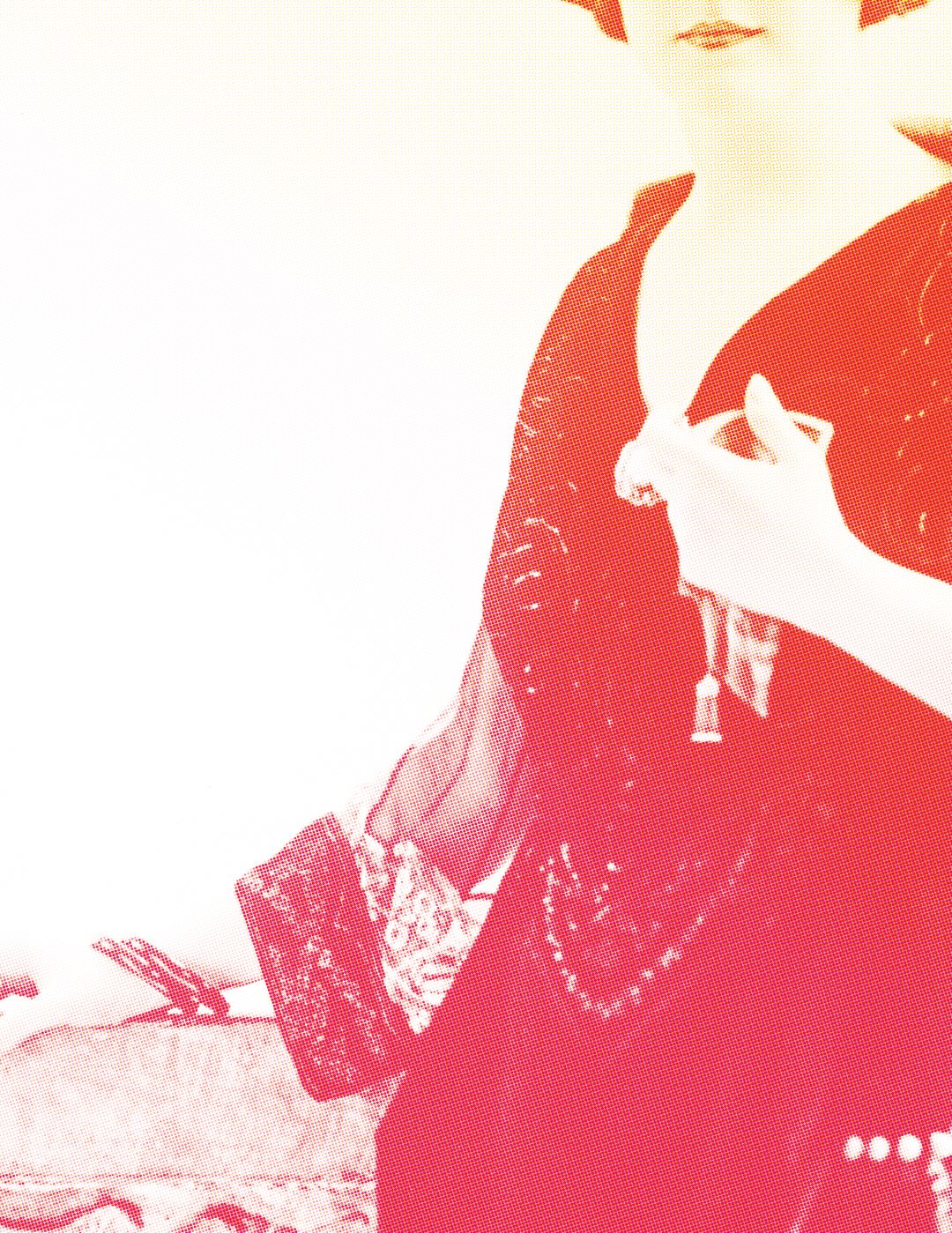Easy Mark: A Short Story by M. J. Zellnik

By the standards of Paris or New York, the crowd milling about the reception room of the Portland Central Library for the 1949 fundraising gala did not glitter. Until she walked in.
Silver hair framed an elderly face, but what caught my eye was the brooch affixed to her evening coat. From what I could see (and I am somewhat expert in these matters) the antique-looking piece consisted of a large fire opal surrounded by pearls and rose-cut diamonds. Sadly, it was probably too distinctive to fence, but even broken up, the gems would be worth a pretty penny.
For the next 20 minutes, I tried without luck to get a better look. But I couldn’t get close to the old woman without drawing attention to myself. Not to mention she was shadowed by a younger man—some sort of bodyguard?—who hovered over her as she moved through the crowd dispensing practiced smiles.
Finally, I saw an opportunity. While her escort headed towards the buffet, the woman headed towards the hallway that led to the restrooms, leaning on the arm of a sturdy, middle-aged librarian.
I contrived to arrive at the entrance to the hallway at the same moment as the ladies. We did the usual awkward dance of who should enter first and then, pretending to misunderstand, I pushed through at the same time they did. In doing so I brushed close to the older woman, grazing her fur collar. Naturally, I apologized profusely for my clumsiness, but then continued on my way, the opal brooch now on my person instead of hers.
A minute or so later, I was perusing the hallway’s collection of framed book covers when I felt a hand grasp my sleeve. It was the silver-haired woman. Pale blue eyes looked up at me beseechingly.
“I’m so sorry, I ...,” She fell against me, and instinctively I steadied her. “I’m afraid I may faint! Miss Brooke,” she turned to the librarian, “could you find my son? Ask him to bring my pills from the car.” She turned back to me, “And, young man, could I ask your help getting to that bench?”
I didn’t see how I could demur, though this somewhat compromised my plans for making a quick exit. “Oh, thank you! I don’t know what came over me. No, I do know. I noticed my brooch was missing—it must’ve fallen off, and the shock when I realized—I was suddenly light-headed.”
I covered my discomfort at the mention of the brooch with easily deployed charm. “It’s you who saved me from pretending to care about the classics of children’s literature.” She raised an amused eyebrow at my gallantry. “But now that you’re seated, I really must ...”
“No, please. Sit with me for a moment.” Her hand remained in the crook of my arm, effectively pinning me there. “Just until I get my bearings.”
Resigned, I acquiesced, earning a grateful smile.
“That brooch means a great deal to me. And not just because it catches the eye.” She glanced up. “You noticed it when I came in, didn’t you?”
So much for being inconspicuous.
“Oh, I still notice when an attractive young man is looking at me. But, at my age, I know it’s not my face they’re dazzled by.” She sighed and looked away. “It’s quite worthless, you know.”
“Excuse me?”
“The brooch. It isn’t real. My attachment to it is purely sentimental. It represents ... a life lesson more valuable than any jewel.”
Life lesson? Were these just ramblings, or was something more going on? “Is that so?” I said politely.
“The first time I saw the pin was in Goldman Jewelers on Second and Oak. Oh, it’s not there anymore ... this was a long time ago. My family had lost everything in a bank failure—I suppose you’re too young to know or care about the Panic of ’93—and I had gotten a job at a candy shop on Oak Street.” She leaned back and settled in.
“Shortly afterwards, Goldman opened his store, and customers up and down the street started buzzing about a fabulous jeweled brooch he had, one he said had belonged to Marie Antoinette! He wouldn’t allow anyone to try it on, but he’d take it out on request, covered by a glass dome, and let customers look.
“Bear in mind, Portland was a much smaller city then, and no one hereabouts could have afforded the brooch anyway. But Mr. Goldman knew his business. People came in to stare, and often walked out with some small purchase. I stopped by on a break to take a look for myself. It was indeed breathtaking. As you moved your head, the orange-red gleam in the center of the opal would flicker like a flame that never went out.
“I don’t remember exactly when I decided to steal it.” I looked over at her, somewhat startled by this unexpected revelation. She didn’t appear to notice. “But once I did, it was all I could think about. With the money it would fetch, my family could make a fresh start.
“So, I took to visiting Mr. Goldman every day at lunchtime, bribing him with free candy to let me see the brooch up close. Actually, I don’t think he cared about the candy. It was more about getting attention from a pretty girl.”
She said this with no sense of modesty, and the hint of a smile.
“Within a few weeks, I had convinced him to remove the glass dome and let me hold it in my bare hands. And that was my golden opportunity. I could swap the brooch for a counterfeit and, since Mr. Goldman rarely took it out, it might be weeks before he even realized he’d been robbed. By then my family and I could be long gone. The only wrinkle was that I’d somehow need to obtain a fake that looked just like the real thing.
“Luckily, I had a secret weapon: my artistic younger brother Harold. Harold could copy anything. Once he made a papier-mâché model of our youngest sister for a practical joke—oh, our mother tanned his hide once she realized baby Charlotte hadn’t really fallen out the nursery window!”
She paused for so long I began to worry she had dozed off, but eventually she patted my arm and continued. “I will spare you the details of how Harold and I created a copy. By the time we were done it was June—and what a rainy June!—and finally the day came for me to make the switch.
“It rained all the night before, and was still pouring when I got up. My mother begged me to skip work. But I’d promised Harold we would soon have a fortune. Rain or not, I was determined not to delay.
“The streets were almost deserted as I made my way down the hill from Northwest Thurman. Despite the empty streets, I felt as if hundreds of eyes were boring into my pocket where I carried the fake. I slogged along, stockings soaked even through my boots.
“But when I turned the corner onto Oak ... oh! Mr. Goldman’s shop was no longer there. Or rather, the building was there, but the window was submerged, and inside I could see floating display cases bumping around. The entire street lay six feet underwater. Boxes, articles of clothing—even a leg of lamb—floated by. A policeman on a rooftop motioned me to move to higher ground, but I stood there in the rain, frozen in place.” She noticed my confusion, for she added, “1894 was long ago, but any Portlander alive then will remember it. All the streets within a few blocks of the Willamette were like that. Men traveled down the streets in rowboats as if they were horses and carriages! It was like that for days.”
“So what happened to your plan?”
“Like many merchants after the Great Flood, Mr. Goldman never reopened his shop. At any rate, I never had another opportunity to switch the brooches. But I doubt I would have anyway. I understood the lesson the universe was trying to teach me.”
She stared right at me. I gave a small laugh, although truthfully, she was making me uncomfortable. “What lesson was that? If you’re planning a crime, make sure to check the forecast?”
“Not that at all. What I realized is that with my brother’s talents and my charisma, we could do more than make copies. We started our own jewelry store, which became many stores, and now our last name is carved in limestone on one of those big buildings on Southwest Taylor.”
She lowered her voice like a teacher reprimanding a favorite student. “The lesson, young man, is that one’s talent, brains, and charm can be put to better use than stealing. Crime may pay, but other things pay just as well or better, and without the risk.
“So, now you understand. My brooch has no value to anyone except to me.”
She gazed up at me with a look I can only describe as coquettish, and I could suddenly see the pretty girl she’d been a half century before. “You’ve been so kind, but won’t you do me one more favor? Could you look over by the door where my pin must have fallen off to see if you can find it?”
And so I crossed the hall, fell to my knees, and made a show of feeling along the marble baseboard. While my back was to her, I removed the brooch from the hidden inner pocket of my vest and held it up triumphantly. “It was here the whole time!”
I handed it back to her and she beamed. Just about then, her companion arrived in the hall holding out a vial. “Mother, are you all right?”
“Yes, Henry. I don’t think I’ll be needing my pills after all. But here,” she held out the brooch, “would you take this? The clasp must be loose. It fell off my coat, and if it hadn’t been for this gentleman I might not have found it again.”
Henry looked alarmed. “Of course! I’ll take it down to the store tomorrow and have Vincent put on a new clasp.” He pocketed the pin carefully. “Are you ready to go? I’ll pull the car around.” As he left, I noticed his hand was reflexively patting his pocket.
Suspicion was dawning. “Henry seemed more upset than I’d have thought over a piece of cheap, imitation jewelry.”
She smiled as we started to walk back into the lobby. “I was right, you are clever as well as handsome.”
“So ... how much of what you told me was bunk?”
“Oh, no, everything I told you was true! I just left out a fact or two. The cheap copy we made in 1894 fell apart after a few years. So my brother made a second copy, just to ensure that we would never forget the dark road we almost went down. Of course, by then our stores were a success and this time the materials he used were all quite, quite real.”







